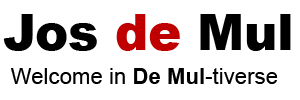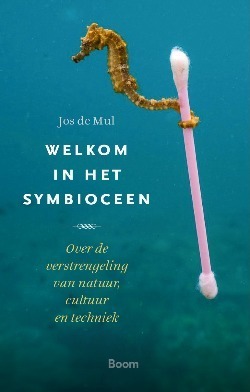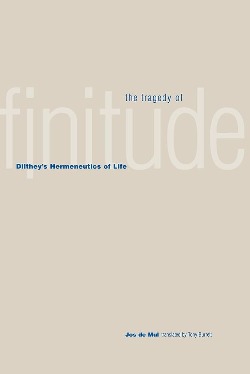2014-04-04 (Rotterdam) Opening Maand van de Filosofie
Jos de Mul, Presentatie Kunstmatig van nature tijdens de Opening Maand van de Filosofie. Rotterdam: Arminius, 4 april 2014.
Voormalig Denker des Vaderlands Hans Achterhuis zal de Maand van de Filosofie 2014 officieel inluiden. Vervolgens wordt het eerste exemplaar van het essay van de Maand ten doop gehouden: Kunstmatig van nature: Onderweg naar Homo sapiens 3.0. In dit essay bespreekt prof. Jos de Mul recente ontwikkelingen in de neurowetenschappen, genetica en robotica
Als een ‘speculatief antropoloog’ schetst De Mul onze toekomst. We leven straks mogelijk in een wereld vol androïde robots, waarin onze hersenen continu gekoppeld zijn aan computers en het ‘bouwplan’ van het leven, ons DNA, aan de hand van de nieuwste wetenschappelijke inzichten is herontworpen. De Homo sapiens 3.0 wordt gemaakt in onze laboratoria en universiteiten. Maar eh, willen we dat eigenlijk wel en wie stuurt dit veranderingsproces eigenlijk aan? Jos de Mul gaat over deze vragen in gesprek met Jan Staman, directeur van het Rathenau Instituut. Presentatie en gespreksleiding: Leo van de Wetering en Erno Eskens. Met muziek van Ronald van Hoorn en Edwin Kandau.
vrijdag 4 april 2014, 16.00 – 17.30,
entree € 5 | Studenten en Rotterdampas € 2,50
De Opening Maand van de Filosofie wordt georganiseerd door Stichting Maand van de Filosofie i.s.m. Arminius



 The nation state, imagined as a formation encompassing a culturally unified people, is now straining under the challenges of globalization and the revolution in communication technology. This conference will consider the dynamic changes that are currently taking place with respect to cultural and religious diversity as a result of the explosion in communication technologies, address the conflicts they give rise to, and discuss the ramifications for both law and politics.
The nation state, imagined as a formation encompassing a culturally unified people, is now straining under the challenges of globalization and the revolution in communication technology. This conference will consider the dynamic changes that are currently taking place with respect to cultural and religious diversity as a result of the explosion in communication technologies, address the conflicts they give rise to, and discuss the ramifications for both law and politics.

 The city, too, is landscape. We can leave it by going into nature exchanging the urban for the rural, but we can also enter the city to live within the architecture and contemplate its forms. Every architectural structure is a landscape and promotes an educational or paedeumatic relationship between the spirit and the environment. Our gaze and our bodies activate a certain way of contemplating that promotes the interchange between the external perception of the physical world and an internal seeing, which is the psychic perception of the visual image. There is a close relationship between the aesthetic experience of the natural environment and that of the urban landscape. In the same way that humankind lives on the earth so, too, it lives in the city.
The city, too, is landscape. We can leave it by going into nature exchanging the urban for the rural, but we can also enter the city to live within the architecture and contemplate its forms. Every architectural structure is a landscape and promotes an educational or paedeumatic relationship between the spirit and the environment. Our gaze and our bodies activate a certain way of contemplating that promotes the interchange between the external perception of the physical world and an internal seeing, which is the psychic perception of the visual image. There is a close relationship between the aesthetic experience of the natural environment and that of the urban landscape. In the same way that humankind lives on the earth so, too, it lives in the city.







